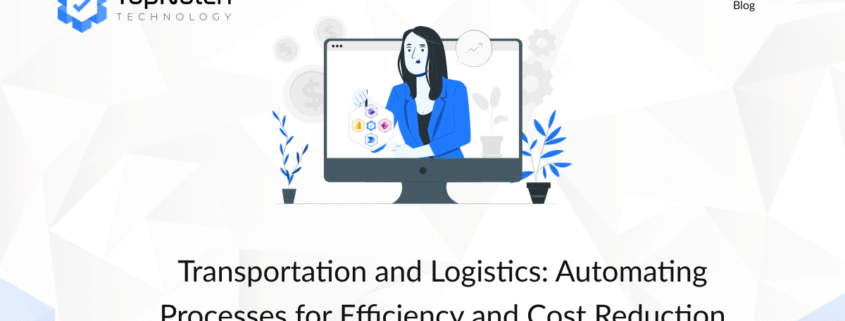Transportation and Logistics: Automating Processes for Efficiency and Cost Reduction
Introduction: The transportation and logistics industry plays a critical role in the global economy, responsible for moving goods and people. With the increasing complexity of supply chains and growing customer demands for faster deliveries, companies in this sector are turning to automation to improve efficiency, reduce costs, and enhance customer experience. Microsoft Power Platform provides solutions that can streamline operations and transform business processes.
Challenges in Transportation and Logistics:
- Operational Efficiency: Managing fleets, warehouses, and logistics networks requires optimizing routes, reducing fuel costs, and maintaining timely deliveries.
- Supply Chain Visibility: Companies need real-time insights into their supply chains to minimize disruptions and predict demand.
- Regulatory Compliance: The transportation industry must comply with various regulations, such as DOT (Department of Transportation) rules and environmental standards.
- Customer Expectations: Customers demand faster, more reliable deliveries with greater visibility into the status of their shipments.
How Power Platform Helps in Transportation and Logistics:
- Power Apps: Companies can build custom apps for managing delivery schedules, tracking shipments, and communicating with drivers. These apps can integrate with GPS systems to optimize delivery routes and reduce delays.
- Power Automate: Power Automate can automate administrative tasks such as invoicing, shipment tracking updates, and compliance checks. For instance, when a shipment is delayed, Power Automate can notify customers and generate compensation invoices automatically.
- Power BI: Power BI provides logistics companies with real-time dashboards to track key metrics such as delivery times, fleet performance, and supply chain efficiency. Predictive analytics can help optimize routes and reduce operational costs.
- Power Virtual Agents: Virtual assistants can provide customers with real-time updates on shipment status, delivery tracking, and schedule changes, improving customer satisfaction.
Case Study: A global logistics provider integrated Power Platform into their supply chain operations. With Power Automate managing invoice generation and Power BI tracking fleet performance, they reduced operational costs by 15% and improved delivery accuracy by 10%.
Explore how Power Platform can optimize logistics operations.
